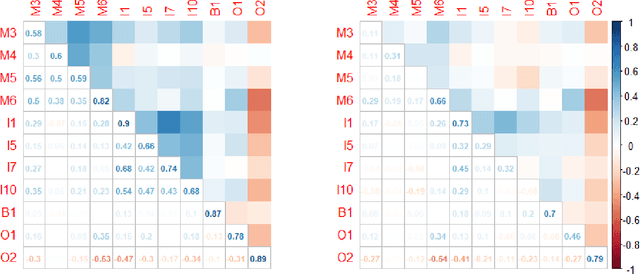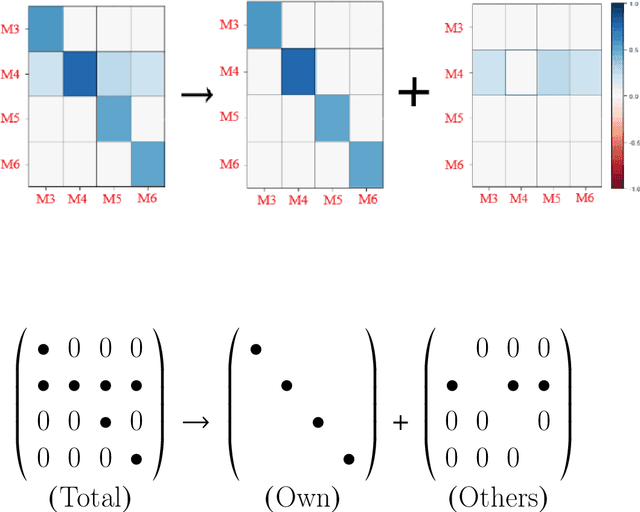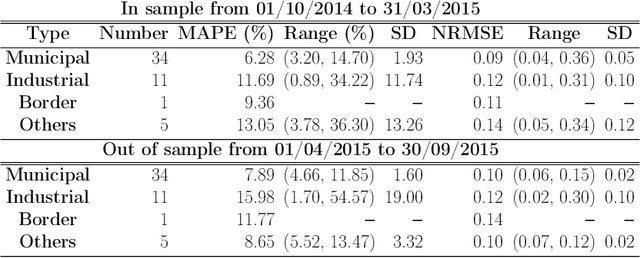Ray-Bing Chen
The Variational Bayesian Inference for Network Autoregression Models
Feb 18, 2021



Abstract:We develop a variational Bayesian (VB) approach for estimating large-scale dynamic network models in the network autoregression framework. The VB approach allows for the automatic identification of the dynamic structure of such a model and obtains a direct approximation of the posterior density. Compared to Markov Chain Monte Carlo (MCMC) based sampling approaches, the VB approach achieves enhanced computational efficiency without sacrificing estimation accuracy. In the simulation study conducted here, the proposed VB approach detects various types of proper active structures for dynamic network models. Compared to the alternative approach, the proposed method achieves similar or better accuracy, and its computational time is halved. In a real data analysis scenario of day-ahead natural gas flow prediction in the German gas transmission network with 51 nodes between October 2013 and September 2015, the VB approach delivers promising forecasting accuracy along with clearly detected structures in terms of dynamic dependence.
Finding Optimal Points for Expensive Functions Using Adaptive RBF-Based Surrogate Model Via Uncertainty Quantification
Jan 19, 2020



Abstract:Global optimization of expensive functions has important applications in physical and computer experiments. It is a challenging problem to develop efficient optimization scheme, because each function evaluation can be costly and the derivative information of the function is often not available. We propose a novel global optimization framework using adaptive Radial Basis Functions (RBF) based surrogate model via uncertainty quantification. The framework consists of two iteration steps. It first employs an RBF-based Bayesian surrogate model to approximate the true function, where the parameters of the RBFs can be adaptively estimated and updated each time a new point is explored. Then it utilizes a model-guided selection criterion to identify a new point from a candidate set for function evaluation. The selection criterion adopted here is a sample version of the expected improvement (EI) criterion. We conduct simulation studies with standard test functions, which show that the proposed method has some advantages, especially when the true surface is not very smooth. In addition, we also propose modified approaches to improve the search performance for identifying global optimal points and to deal with the higher dimension scenarios.
Greedy Active Learning Algorithm for Logistic Regression Models
Feb 01, 2018



Abstract:We study a logistic model-based active learning procedure for binary classification problems, in which we adopt a batch subject selection strategy with a modified sequential experimental design method. Moreover, accompanying the proposed subject selection scheme, we simultaneously conduct a greedy variable selection procedure such that we can update the classification model with all labeled training subjects. The proposed algorithm repeatedly performs both subject and variable selection steps until a prefixed stopping criterion is reached. Our numerical results show that the proposed procedure has competitive performance, with smaller training size and a more compact model, comparing with that of the classifier trained with all variables and a full data set. We also apply the proposed procedure to a well-known wave data set (Breiman et al., 1984) to confirm the performance of our method.
Multiple-Instance Logistic Regression with LASSO Penalty
Jul 13, 2016



Abstract:In this work, we consider a manufactory process which can be described by a multiple-instance logistic regression model. In order to compute the maximum likelihood estimation of the unknown coefficient, an expectation-maximization algorithm is proposed, and the proposed modeling approach can be extended to identify the important covariates by adding the coefficient penalty term into the likelihood function. In addition to essential technical details, we demonstrate the usefulness of the proposed method by simulations and real examples.
 Add to Chrome
Add to Chrome Add to Firefox
Add to Firefox Add to Edge
Add to Edge